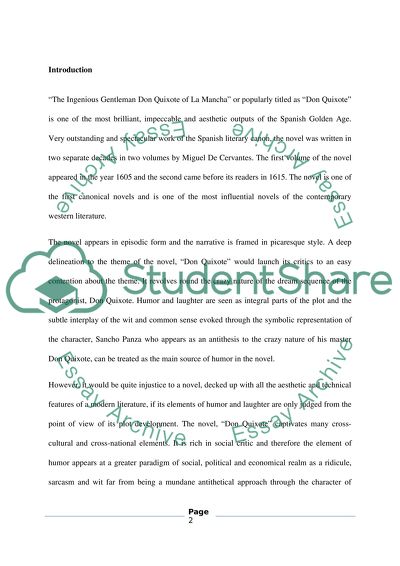Cite this document
(“The Nature of Humor and Laughter in Don Quixote Essay”, n.d.)
The Nature of Humor and Laughter in Don Quixote Essay. Retrieved from https://studentshare.org/literature/1440583-don-quixote
The Nature of Humor and Laughter in Don Quixote Essay. Retrieved from https://studentshare.org/literature/1440583-don-quixote
(The Nature of Humor and Laughter in Don Quixote Essay)
The Nature of Humor and Laughter in Don Quixote Essay. https://studentshare.org/literature/1440583-don-quixote.
The Nature of Humor and Laughter in Don Quixote Essay. https://studentshare.org/literature/1440583-don-quixote.
“The Nature of Humor and Laughter in Don Quixote Essay”, n.d. https://studentshare.org/literature/1440583-don-quixote.


